The landscape of private renting and tenants' rights in the UK has changed significantly in recent years. From sky-high costs to unreasonable landlords, private tenants faced an average rise of 6.2% in rental prices over the last 12 months and a third struggled to afford payments.
It’s not just cost, either, as plenty of tenants may deal with landlords failing to meet standards or resorting to Section 21 evictions. All of this adds up to a difficult landscape to negotiate, especially if you haven’t rented in a while (or are brand new to the game).
We’ve got the lowdown on everything you need to know for your next private renting experience. This guide is ideal for first-time private renters, those confused about the Renters Reform Bill, or tenants who just want to know their rights.
The good news for private tenants is that the future could be changing with the long-awaited Renters Reform Bill that’s set to rebalance the scales for tenants. This could mean more rights for private tenants and fewer threats of evictions, poor conditions, and unfair rent increases.
If some (or all) of the above is a little over your head, don’t worry as we’ll cover everything you need to know. From viewing properties and securing a deposit to negotiating rent and complaining about your landlord, we’ve got you.
While the Renters Reform Bill is currently delayed, we’ll keep this article updated with the latest changes and amendments.
Before moving in: finding a rental property
Beginning the process of moving and finding a good place to rent can be daunting. We’ll go through this guide in chronological order, so if you’re looking at places to view, start here.

Letting agents vs renting directly from private landlords
Letting agents act as an intermediary between you and the landlord of a rented property. Going through a letting agency is much more common and there are plenty to choose from. Their job is to represent both parties, manage the property, and act as the point of communication.
There are no loyalty expectations when it comes to using letting agents. You can view properties with as many agencies as you want; you’ll only enter a rental agreement once you’ve decided on the property.
You can also rent directly from a landlord; sites for finding landlords include OpenRent and Gumtree. Once prevalent, this option has become less necessary since the Tenants Act 2019 banned agents from charging admin fees.
It may still be cheaper to rent directly from a landlord since agencies incorporate commission into the monthly rental cost. If you choose this option, you could be less protected, so make sure you know your rights.
Types of rental properties & agreements
The most common type of rental agreement is an assured shorthold tenancy (AST). An AST means you rent from a private landlord but don’t live with them. You’re also usually on a fixed-term tenancy such as six months or 12 months, before it converts to a rolling monthly contract.
The Renters Reform Bill could be set to eliminate assured shorthold tenancies for future rental agreements.
A house in multiple occupation (HMO) is shared housing with private bedrooms and communal areas. HMOs are made up of a shared house with at least three tenants who aren’t related to each other. Rental agreements in this case are either joint tenancies (everyone is on the same agreement) or individual tenancies (each tenant is on a separate agreement).
If you rent a room in a house where your landlord lives, you’re classed as a lodger. This is the least common agreement in housing where the landlord is known as a live-in or resident landlord. While this is still a form of renting, the usual private tenants’ rights we cover in this guide often don’t apply, so you should seek advice.

What does your budget allow?
Pinpoint your budget by researching the average rental price in the area. This will all depend on the number of bedrooms, property size, property age, location, and council tax band.
Your rent makes up a large portion of your monthly outgoings, but you should also factor in essential bills like council tax and utilities. These will vary depending on the council tax band, type of heating, and property size. A little research will give you a rough idea of what these figures will be every month.
Some budgeting advice recommends keeping your rent (without bills) at around 30% of your monthly salary, but for many, this isn’t feasible. Factor in the cost of living crisis, disproportionate wage increase, and those living alone, and this figure can be closer to 50% (in London, often higher). Figure out what works for you and your lifestyle so that you can get by comfortably.
What to look for & ask at a viewing
Now that you’ve figured out your budget and found some appropriate listings, it’s time to start viewing properties. Along with personal priorities, there are crucial questions you should ask to make sure the place is up to scratch. Here’s a list of things you should take notes (and photos) of when you view properties.

What’s the energy rating?
Check the Energy Performance Certificate (EPC) rating of the property. A higher EPC rating means better energy efficiency, which can affect your monthly bills The EPC scale runs from A to G; A being the most efficient and G being the least, although it’s illegal to rent out a place with anything below E.
You should also check if the windows are single, double, or triple-glazed. Single-glazed windows are pretty uncommon and will mean a hard-to-heat house, whereas double- and triple-glazing will keep in more warmth.
What type of heating does it have?
If you’re renting a home with electric heating, the running costs could be significantly higher than properties with gas central heating. Check the age and condition of the heating system, including the boiler.
Who are the neighbours?
Neighbours can seriously affect your experience of living in a rented property. Get information on what they do and who they are – night shift workers, a family with young children, a single professional? If the current tenants are there, you can ask them more detailed questions about how loud they are and if they’re friendly.
What council tax band is it in?
Make sure to ask about the council tax band of the property, as this will affect your monthly payments. A property in a higher band could mean a significant increase in your monthly living costs. If you're renting alone, you’ll qualify for a 25% discount.
Are any bills included?
Most tenants in private renting agreements will be responsible for their own utility bills and council tax, unless specified otherwise in the lease (sometimes in an HMO or as a lodger).
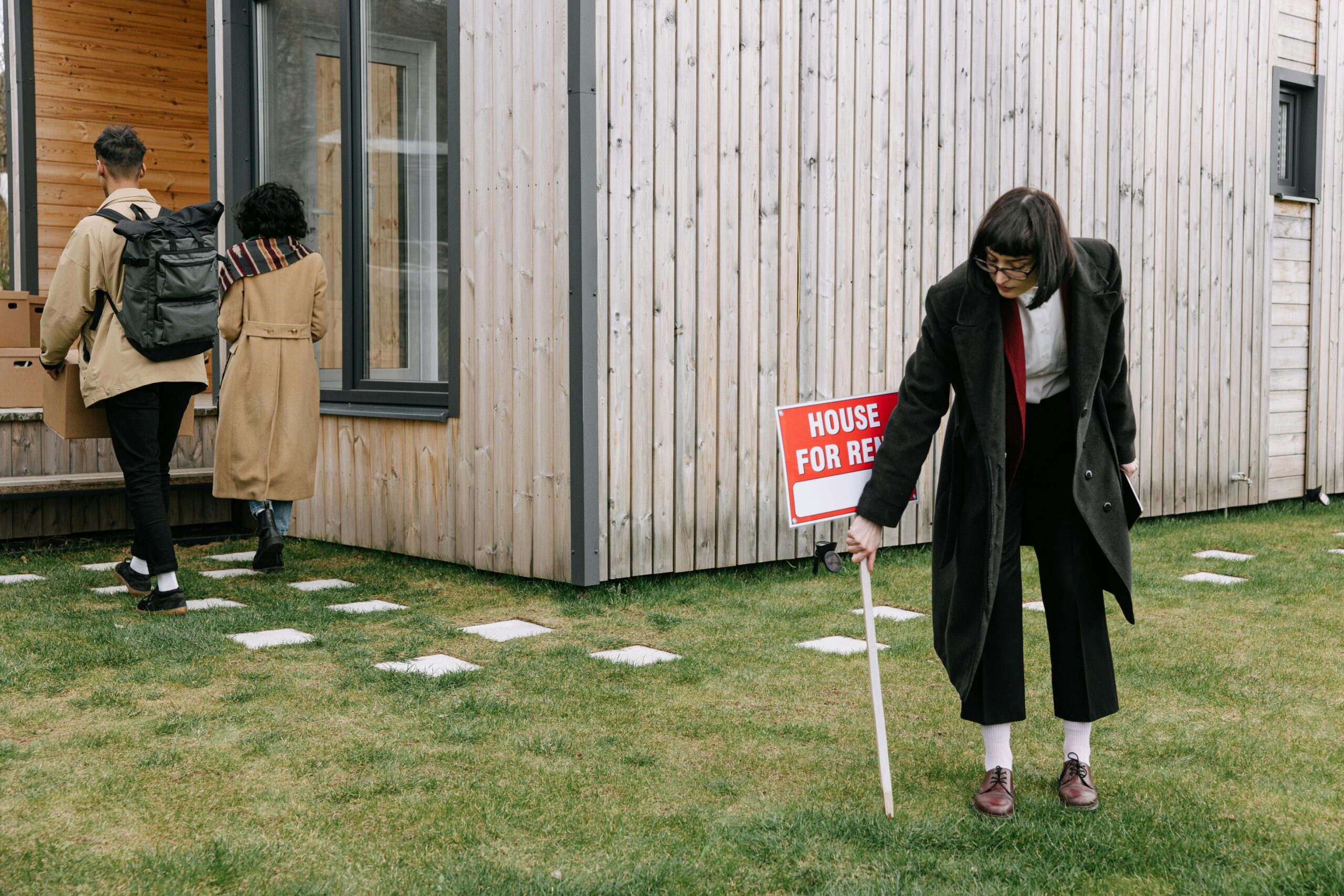
Is there an issue with damp?
Mould and damp are particularly common issues, so take a look at the walls for tell-tale black spots. Ask if damp is an issue in the property; would the landlord would be willing to buy a dehumidifier?
Can I redecorate?
This issue is completely dependent on the landlord, so it’s worth asking. Some landlords may be okay only with decorations like wall hangings while others may be more flexible with things like repainting and re-flooring.
Who’s responsible for the garden?
Maybe you’ve found the flat of your dreams but there’s a huge garden attached that you’re not equipped to deal with. Ask if garden maintenance is a condition of the tenancy agreement or if the landlord would be willing to negotiate this.
If it’s furnished, what’s included?
Furnished and part-furnished properties will vary in what’s provided, so ask for specifics that you can write down and take photos of. If you don’t like them, can they be removed?
If it’s unfurnished, are white goods included?
Unfurnished properties only vary in whether or not white goods are included. This means a fridge, freezer, and washing machine, which are expensive to buy for yourself. If they’re included, take photos of the condition – would the landlord be willing to replace or deep clean them if they’re in poor condition?
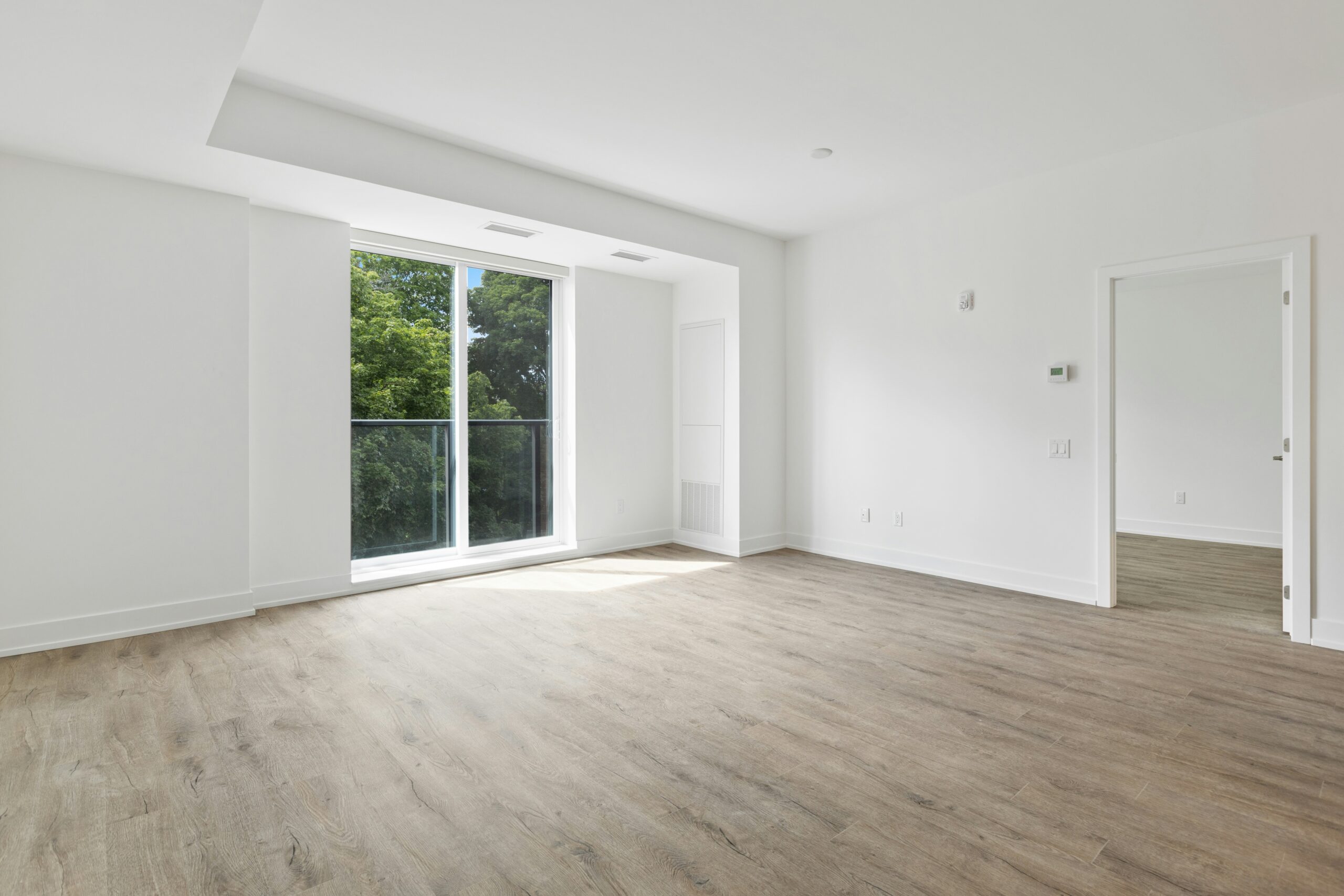
Is parking included?
This should be made clear on the listing, but it’s good to check again in person. Sometimes you’ll have a spacious driveway, one small allocated space, or on-street parking.
Are pets allowed?
This is another aspect set to change with the Renters Reform Bill, but for now, some landlords can still refuse tenants with pets.
What’s in the area?
It’s important to know the location of the property, as local amenities, transport options, and walkability can significantly affect your renting experience. How far is it from the local shops or larger supermarkets? Is there a school in walking distance? What transport options are available? These are especially helpful questions if you’re brand new to the area.
Things to check
Take a good look at the general maintenance level of the property – fittings and appliances will give you a good idea. Look inside ovens, run the taps, flush the toilet, and open the windows to make sure things work as they should. If you see anything in need of repair or upgrade, make sure you take photos and point them out.
Notice how much storage space there is for cleaning appliances, coats and shoes, kitchen supplies, and bathroom necessities. The less there is, the more you’ll have to buy.
What documents you’ll need
Found a property you like and want to apply for? Here are the documents you’ll need to ensure a smooth rental application process.

Your passport or driving licence, and visa (if relevant) for proof of right to rent within the UK.

Have a digital copy of your employment contract ready.

Usually the last three months as proof of earnings and financial stability.

To prove financial stability, especially for those who are self-employed.

It can be helpful for first-time renters to provide character references from friends, family, or colleagues to establish trustworthiness.

You can get a free credit report from an online service, although letting agents will often perform their own credit check on you.

For certain candidates like first-time renters or students, a tenant guarantor will be required as a backup if you can’t pay rent.

Don’t forget the application! Fill it out as accurately and thoroughly as you can.
Having as many of these tenant documents ready beforehand as you can means you can apply soon after viewing. This may give you the upper hand if you tick the boxes the landlord is looking for. But make sure you don’t rush into a decision you’re not 100% sure about.

What can you negotiate?
If a property is 90% of what you want, why not try to negotiate the other 10%? Make sure you approach these issues before you sign any type of tenancy agreement. Some of the things you can negotiate are:






Your landlord won’t immediately be open to an offer of lower rent, so make sure you have some bargaining tools up your sleeve.
Here are some tips for negotiating rent:
Research similar properties using Rightmove and Zoopla. Compare things like size, area, what’s included in the price (bills, appliances, white goods, parking etc), and the general age and condition. Even a price that’s £50 lower gives you something to work with.
Moving in & signing documents
Ready to move ahead with a property? It’s time to sign some documents. Make sure you’re reading all literature the letting agents send your way beyond a cursory glance. This is especially important if you’ve done any of the above negotiations; double-check any alterations are in writing.
Other things to look out for are the start and end date, length of tenancy, notice period, and what’s required when moving out.

Keeping track of your legal rights as a tenant can be overwhelming with so many documents to look over. Here’s what you’re legally entitled to:
- Up-to-date smoke alarms and carbon monoxide detectors
- Gas and electricity safety check certificates
- Fire-safe furniture and furnishings
- EPC with an energy efficiency rating of E or above
- Deposit that’s capped at five weeks’ rent
- Deposit that’s protected in a protection scheme
- No admin fees
- Name of the landlord(s)
- A house that’s not overcrowded (HMO)
- Enough facilities for those living in the property (HMO)
Once you get the keys and enter the property, you should take photos as soon as you can. One of the documents you’ll have will be an inventory of what’s included in the property and its condition. Check the inventory notes and photos against the condition of the property and report any discrepancies immediately and in writing.
After moving in: rights, responsibilities & rent increases
Once you move in, you might notice things that weren’t immediately obvious when you viewed the property. Make notes, take photos, and get in touch with either the landlord or the letting agent.
It’s good practice to keep all your correspondence in written form; if you speak on the phone, follow up with a written email outlining what was discussed. Create a specific folder for all property-related emails so you can keep track of the timeliness of repairs and issues.
Your rights as a tenant
As a tenant, you have the right to a safe and well-maintained property. Landlords are obligated to fix issues like mould or faulty wiring within a reasonable time frame.
You also have a right to ‘quiet enjoyment’; any entry to the property by the landlord, letting agent, or contractors must be requested with 24 hours’ notice and be confirmed by you. This applies to inspections, repairs, and viewings.
However, even if you feel the property fails to meet these standards, you must pay your rent and council tax on time and in full. Any failure to do so may make you vulnerable to eviction for rent arrears.
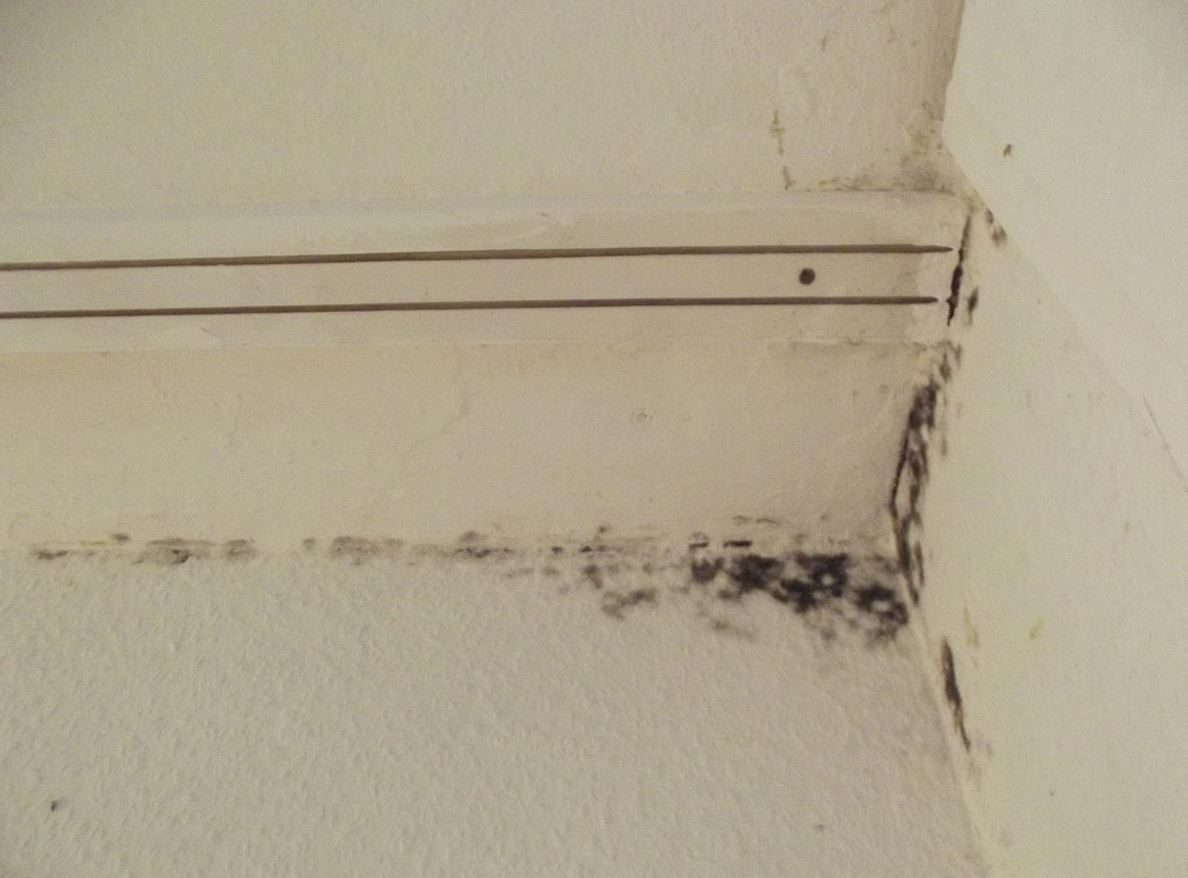
What are my responsibilities as a tenant?
As a tenant, you should do your best to maintain the property by keeping it clean, maintaining the garden (if applicable), and being a good neighbour. Your tenancy agreement may include inspections, which are usually every six months. During an inspection, the landlord or agent will take photos and make notes of the general condition. It’s also a chance to point out issues in person which can be more helpful and may speed up the process.
Can the landlord increase my rent?
Not during your fixed-term tenancy agreement, but once the tenancy term ends, the landlord can use a Section 13 notice to increase your rent.
The good news is rent increases can’t usually happen more than once a year and must come with a month’s notice if you’re on a rolling monthly contract. Any Section 13 rent increase should reflect the current market rates and rate of inflation.
If you compare against similar properties in the area and find there’s a discrepancy, you can challenge the unfair rent increase. A proposed rent increase amount must be agreed upon, so if you don’t agree to it, the next step is to apply for a tribunal. It’s free to apply and involves filling out a Rents 1 form and waiting for a decision.
Moving out: how to get your deposit back
Moving can be an arduous process, so give yourself plenty of time (we suggest a few weeks) to get everything done.

Give notice
If you decide it’s time to move out, you need to give the appropriate written notice. Make sure you’ve come to the end of your fixed term; if you’re on a rolling monthly contract, the amount of notice is usually one calendar month, but always check.
Empty & deep clean
You should leave the property in the same condition you received it in. Whether you do this yourself or pay for a service is up to you, although the landlord cannot legally ask you to pay for one. Keep any receipts if you do pay for a professional cleaning service.
Anything that’s left in a noticeably worse condition can result in some of your deposit being kept by your landlord. This includes things like a dirty oven, stained carpets, badly marked walls, missing appliances, and an overgrown garden. However, you cannot be charged for general wear and tear, like small marks on the walls and floors and faded wallpaper or curtains.
Cleaning and damage are the two main reasons for deposit disputes, so give yourself plenty of time to thoroughly empty and deep clean the property. Once you’ve done this and the property is in its original condition, take lots of photos.
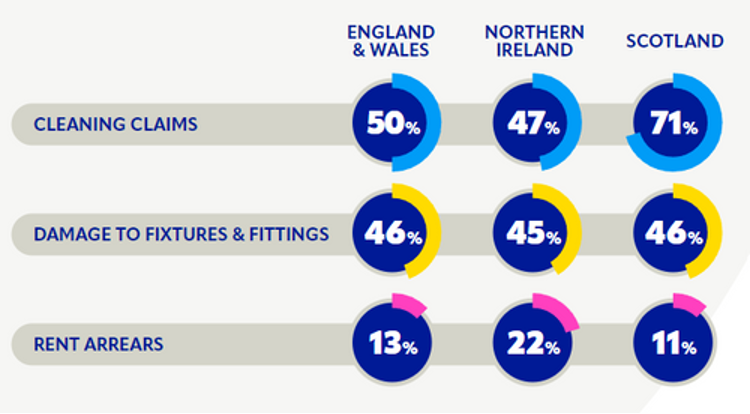
Credit: Tenancy Deposit Scheme
Use your inventory and take similar photos to demonstrate the property is as it was, or has some general wear and tear. Since ‘reasonable wear and tear’ is so subjective, you may need to use these photos if you progress to a deposit dispute.
Inform utility companies
Notify all utility companies of your moving-out date and give them your forwarding address. You should also start making a list of other companies that will need your new address. On moving-out day, take final meter readings.
Return keys
Return all copies of the property’s keys to your landlord or letting agent on or before the agreed end-of-tenancy date. Any missing keys will require lock replacements which will be deducted from your deposit.
Requesting your deposit back
Once you’ve moved out and returned the keys, the property will be inspected for any damage, missing or abandoned items, and cleanliness. You can request to be present for the inspection.
Contact your landlord or agent in writing to confirm you’ve moved out and request the return of your tenant deposit. If they have any they want to hold back, they must give you an amount and a reason for this amount. If you agree, they must release the rest of the deposit within 10 days.

Raising a dispute
If you disagree with the amount, you need to raise a dispute with your deposit protection scheme (DPS).
The amount you both agree on will be returned to you within 10 days. The disputed amount will remain with the tenancy deposit scheme until a decision is reached.
During this time, both parties (you and the landlord) will need to make your case, supplying written reasons, photos, invoices, and emails to support your claim. This can include emails where you’ve reported a problem that went ignored and caused further damage.
You could be waiting up to six weeks for your deposit dispute to be reviewed and be aware that whatever decision is reached cannot be challenged by either party. The good news is that deposit protection schemes tend to side with the tenant. As long as you have fulfilled your duties as a tenant and can prove the property was left in a reasonable condition, you’ll likely get your money back.
What happens if you get a Section 21 notice
A Section 21 notice is a no-fault eviction from your landlord if you’re under an AST. This means you as a tenant haven’t done anything wrong, but the landlord wants their property back, often to move back in.
In recent years there have been ‘revenge evictions’ where landlords issue Section 21s as a way of dealing with complaints from tenants who request repairs. These notices are set to be abolished under the Renters Reform Bill.
Check the details of the notice thoroughly; if anything is incorrect then the notice is illegal and you can challenge it.
All Section 21 notices must be given with at least two months’ notice, so there’s no immediate need to move out. If you need more time to find somewhere to move, try speaking to your landlord to ask for more time. Alternatively, you can ask your local council for help finding somewhere or staying in your current place.
FAQs
Private renting is a complicated topic with lots to know, so if you still have questions, we get it.
If the condition of your property is seriously affecting your quality of life. This could be ongoing issues that haven’t been repaired and affect your life, like plumbing repairs or power issues. It also includes repair work that limits your use of the property, prevents you from working, or uses large amounts of energy.
While these situations qualify you to ask for a rent reduction, you should never stop paying rent. Even if your property is unlivable, withholding rent gives your landlord a basis to evict you.
If your landlord fails to repair issues, enters without permission, or discriminates against you, you have a right to complain. Start with a written complaint to your landlord/letting agent outlining the issue, timeline, and expected repairs.
You can escalate your complaint to your local council if your landlord is still refusing to act on your complaint.
Tenancy deposits depend entirely on the property, but the amount is capped at five week’s rent. This was introduced with the Tenants Act 2019 and applies to rented properties with a total annual rent of under £50,000. You may also pay a holding deposit of one week’s rent to reserve the property, which makes up part of the total deposit amount.
A deposit protection scheme is a third party that acts as an intermediary between you and the landlord. This means your deposit is kept by this body until the end of the tenancy, so it’s safe for and from both parties. Any disputes over the returned amount are settled by a panel of impartial adjudicators.
Currently, private landlords can refuse people receiving benefits, known as a ‘No DSS policy’. However, letting agents cannot make this discrimination; as long as you pass an affordability assessment, there’s no reason they can’t rent to you.
The Renters Reform Bill is set to change discrimination by private landlords against families with children, those receiving benefits, and pet owners.
The Renters Reform Bill was introduced in May 2023, and was delayed passing through the House of Commons due to opposition. Under the new Labour government, the bill is still on the table and currently being read in parliament. It will be ready once amendments have been made so that there is enough agreement to pass the bill.
The bill aims to support tenants, abolish no-fault evictions and discrimination against low income tenants, among other things. It remains to be seen which amendments will be made to the bill and what that means for the future of the private rented sector and renting.
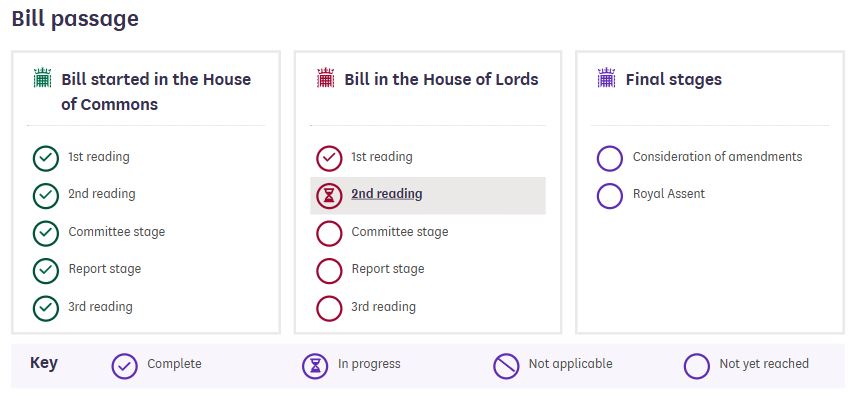
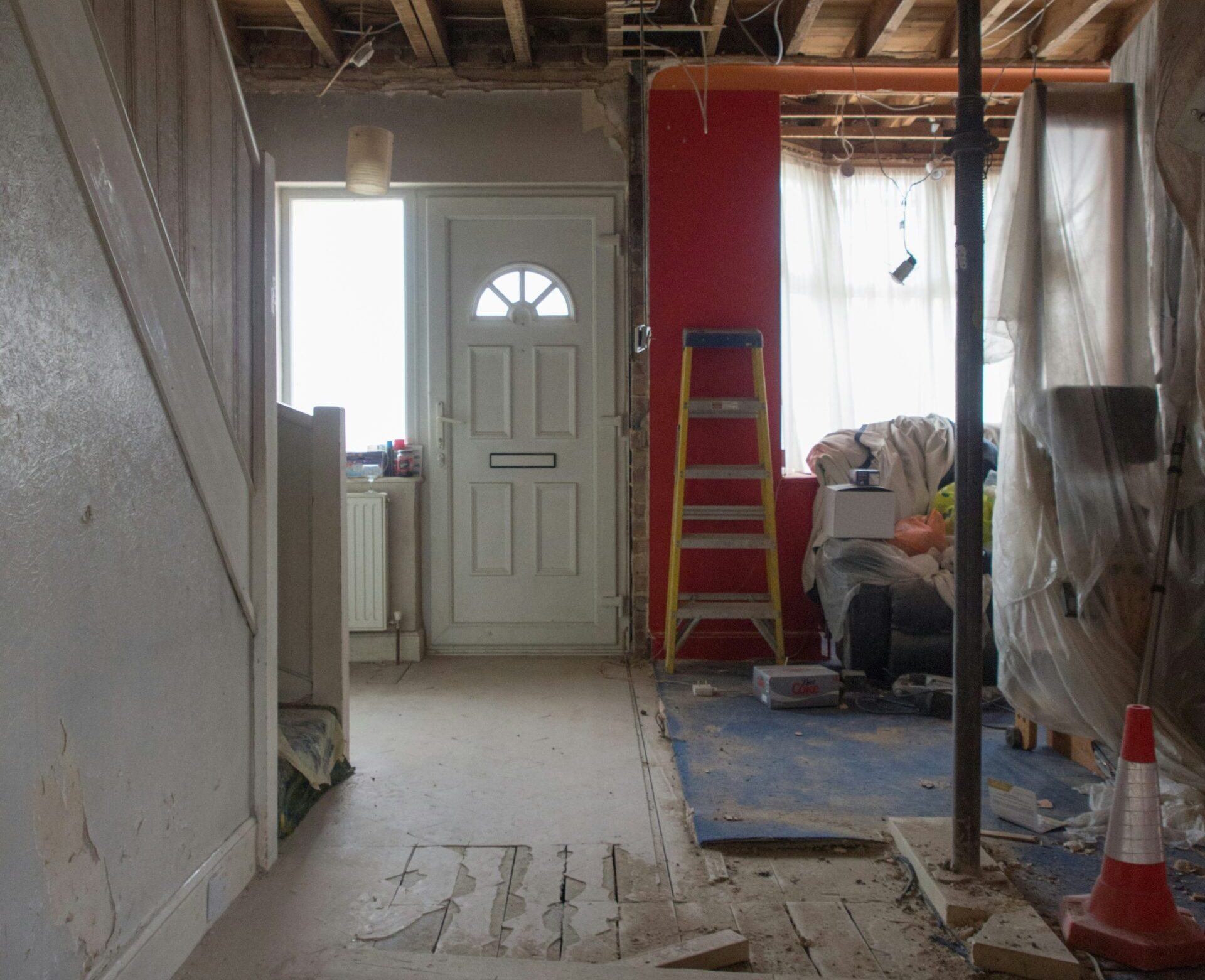
Navigating your rental journey
Private renting can be a complicated business, so we hope this guide helps you in your quest to find a good place to live. Ultimately, the best way to get the most out of your rental experience is to equip yourself with knowledge on what you’re legally entitled to.
We’ll keep this guide updated alongside any updates associated with the Renters Reform Bill, so you can keep checking back for what’s new. With any luck, tenants' rights will continue to increase with fewer evictions and more leeway for private renters.
For more on housing advice and legal rights, or help with email templates, contact your nearest Citizens Advice.

 Get £15 cashback for joining TopCashback
Get £15 cashback for joining TopCashback